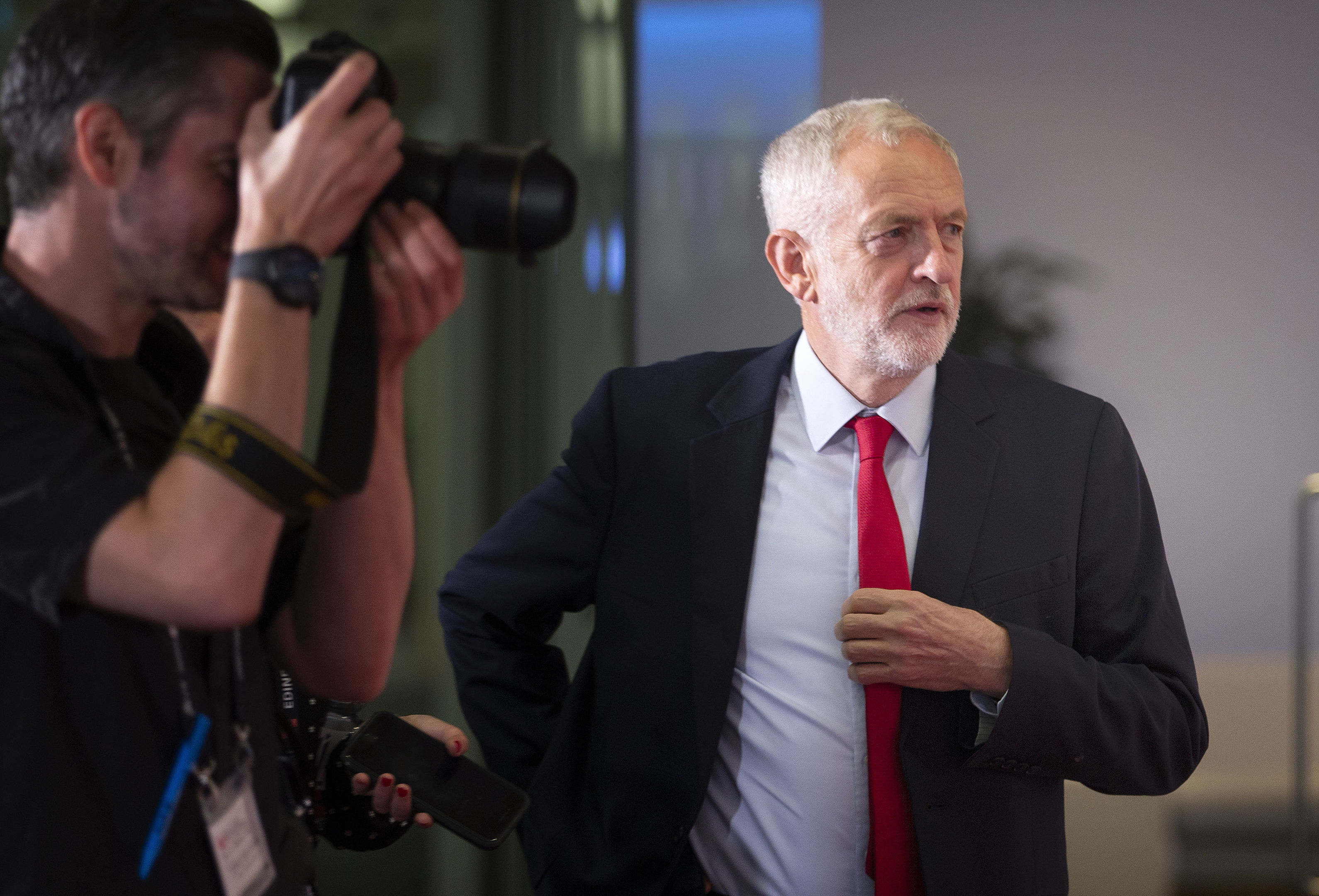
JEREMY CORBYN has suggested the creation of a “sister organisation to the BBC” to rival Netflix and Amazon.
A British Digital Corporation could “deliver information and entertainment to rival Netflix and Amazon but also to harness data for the public good”, he said in a speech at the Edinburgh TV Festival.
The Labour leader also proposed a tax on tech giants to fund journalism.
Mr Corbyn said that Government should negotiate with tech companies “to create a fund, run entirely independently, to support public interest media”.
If that is not possible “we’ll need to look at the option of a windfall tax on the digital monopolies to create a public interest media fund”, he said.
Mr Corbyn said that “our media is failing” when it comes to news and current affairs.
He also suggested giving journalists the power to elect editors “when a title or programme gets particularly large and influential”.
The Labour leader also proposed a shake-up of the way the TV licence fee is paid and set, and called for information about the social class of anyone who creates BBC content to be published, as he delivered his Alternative MacTaggart Lecture at the Edinburgh TV Festival.
“The BBC could lead the way by setting best practice with complete transparency on the make-up of its workforce by publishing equality data, including for social class, for all creators of BBC content, whether in-house or external,” he said.
He outlined proposals for an independent fund for public interest journalism paid for by tech giants, which could include Google, Facebook and Amazon.
He also argued that the licence fee should be modernised for the digital age, with a “fairer and more effective way” to fund the BBC, which he called “a great institution”.
He floated the idea of introducing a digital licence fee – paid by tech companies or through internet service providers – to supplement the existing licence fee, with a view to reducing the cost for poorer households and helping the corporation compete “more effectively”.
Mr Corbyn also proposed the creation of a new independent body to set the licence fee and suggested the BBC should be placed on a permanent statutory footing so that it would be “freed of government control”.
Corbyn ‘needs better ideas than tech tax to fund journalism’
Jeremy Corbyn needs “better ideas” than a windfall tax on tech firms to fund journalism, the UK’s technology trade association has said.
The Labour leader outlined proposals for an independent fund for public interest journalism paid for by tech giants, which could include Google, Facebook and Amazon, in a speech at the Edinburgh TV Festival.
Citing a settlement made between Google and news publishers in France and Belgium, Mr Corbyn said he would like to do something similar in the UK “but on a more ambitious scale”.
If that is not possible the option of a windfall tax on the companies should be looked at, he added.
Many tech giants have proved resourceful when it comes to minimising the tax they pay.
Earlier this month it was revealed Amazon UK’s corporate tax bill fell by £2.8 million last year despite the company seeing pre-tax profits nearly treble.
Antony Walker, deputy chief executive at techUK, which represents more than 950 technology companies, dismissed the idea of a tax and said many of the tech giants are already contributing to the Cairncross Review of press sustainability in the UK.
He said: “It is in everyone’s interest to ensure that high-quality independent journalism continues to thrive and that digital platforms support a healthy and informed public debate.
“Many tech companies are already working hard to address the misuse of platforms to seed disinformation. Tech firms are also working with traditional news media organisations to help them transform their develop business models for the digital age.
“It is good to see Mr Corbyn engaging on these issues, however we need better ideas than just another proposal to tax tech companies.
“The Cairncross Review has been set up explicitly to look into the future of high-quality journalism in the UK.
“Many techUK members are engaged in contributing detailed submissions to this review and we hope that Labour will engage constructively with the process.”
Ian Murray, executive director of the Society Of Editors, said: “The society welcomes any debate on the future of the media provided it’s done with an open mind and not a political agenda.
“The devil is always in the detail. In a liberal democracy where freedom of speech is so vital, it’s a delicate balancing trick to make sure the media is given the support it needs to flourish and that means looking at social media giants and that the BBC is funded.
“It’s very seldom that one size fits all. We would need the media industry in discussion with any future Labour government.”
Additional reporting by Laura Harding

Enjoy the convenience of having The Sunday Post delivered as a digital ePaper straight to your smartphone, tablet or computer.
Subscribe for only £5.49 a month and enjoy all the benefits of the printed paper as a digital replica.
Subscribe